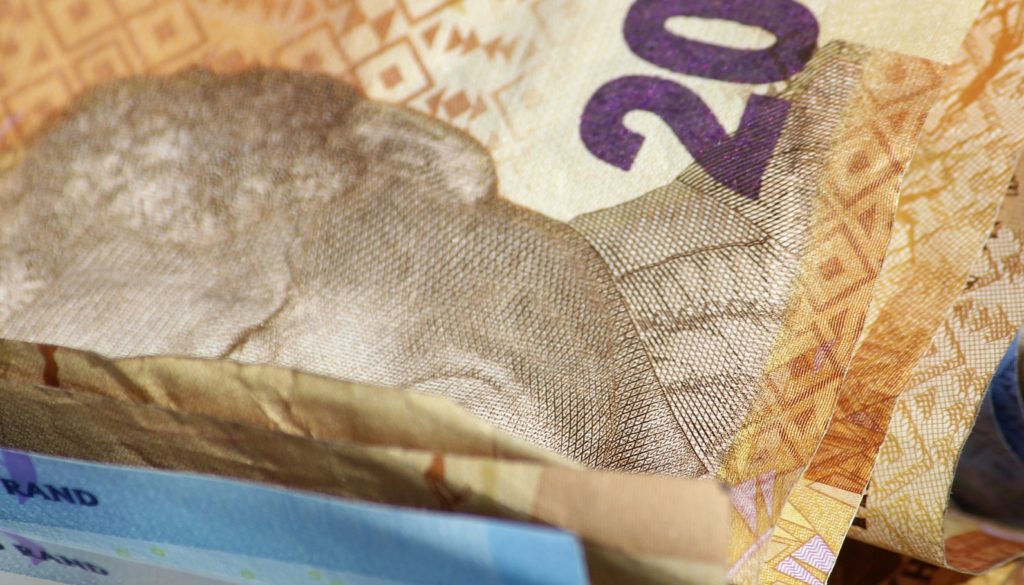We all have them. Those apps we open without thinking. Not because we need anything in particular, but because they feel… safe, in some…
State must close door on those that misuse VC tax incentive [Opinion]

This week saw an outcry from South Africa’s venture capital (VC) and private equity sector over amendments the National Treasury plans to make to the country’s VC tax incentive, which falls under Section 12 of the Income Tax Act.
The SA Venture Capital Association (Savca) told MPs in Parliament that should the National Treasury go ahead with them as they are at present, the amendments risked making the incentive unviable.
The amendments contained in the 2018 Taxation Laws Amendment Bill (see the National Treasury’s explanatory guide here) include a number of proposals intended to root out misuse of the incentive by investors.
The incentive, which came into effect in 2009, entitles investors that invest in accredited VC companies that then invest in small businesses, to make a tax deduction of 100% in the year that the investment was made.
‘Ultimately what is needed is a study to determine if the VC tax incentive is working or not’
However the National Treasury says the incentive has been abused by investors who use it to avoid tax or to pay for a holiday home — according to a Moneyweb report this week that quoted Neill Hobbs, a director at Section 12J VC company Anuva Investments.
While those in the VC sector agree that there has been abuse they say the new proposals will kill the sector. They argue that what is needed are not harsher rules, but better policing of the incentive.
The National Treasury wants to allow only one class of shares in VC companies themselves and the “qualifying” companies that they invest in. The proposals also call for a ban on trading between the investor in the VC company and the targeted qualifying company.
On top of this Sars wants to apply strict penalties — the amendments will be retrospective and a penalty equivalent to 125% of the amount invested by investors will be levied on any VC company found to have transgressed the new rules.
Impact not clear yet
By 4 April a total of R2.56-billion had been raised by SARS approved VCCs, while R640.9-million had been re-invested in qualifying companies.
Yet it is not clear yet how many new jobs the incentive has helped small firms to create — and critically whether these jobs would have been created anyway by some of these firms being able to access traditional finance through banks.
While over a 120 VCCs have been accredited by Sars (as of July 31) — most of these are far from the kind of VC funds many are familiar with that invest in high-growth and innovative firms.
Private equity safe bets
Most of the companies are akin to smaller private equity vehicles that have invested in safe bets like property or assets like machinery or photovoltaic cells or in ageing small businesses in traditional sectors of the economy.
One 12J, Optomise VCC, lists on its website that it invests in “vehicles, equipment, office furniture and fittings” — not exactly the kind of investments one expects will create the jobs or innovation the country badly needs.
Another 12J fund, Westbrooke Capital Management, has invested in hotels, equipment rental companies, alternative energy providers, infrastructure and fibre-optic networks. These are all the kind of things that banks could be investing in.
Few VCCs appear to have invested in what the country really needs more of — high-growth, high job-creating or innovative firms or black-owned firms.
You call that venture capital?
Why then is it called the Venture Capital Company (VCC) tax incentive when such a high number of the entities act more like private equity funds?
In April Savca CEO Tanya van Lill said she had “no specific comment” on whether most of the entities approved by Sars are private equity investors, rather than venture capitalists. She added that she was aware that there are differing interpretations of the legislation among legal practitioners and has consistently requested a tightening of definitions and clarification on meanings.
Sars also doesn’t seem too fazed either. In April Sars spokesman Sandile Memela said qualifying companies which receive such investments from approved VCCs are not required to report on activities undertaken through the injection of such equity finance.
It raises the question then of how concerned the government and the private sector really is over whether the incentive helps create jobs and new firms or not (ie develop South Africa).
Sars’s chief concern is that it doesn’t want to lose tax revenue. The private equity sector it seems worries more about making money than about aiding the country to create more small businesses.
Is the incentive just a nice way for the well-off to score a tax write-off and for Sars to ensure that the rich keep their money in South Africa, rather than squirrelled away on Mauritius or some or other island?
Above all what the country needs is more innovative firms aimed at solving some of the country’s major challenges. It also needs more promising black-owned companies.
Ultimately what is needed is a study to determine if the incentive is working. The National Treasury and private sector should ask themselves the following critical questions:
- How many small businesses have been supported and how many jobs have been created?
- How many of these are black owned? How many are innovative (have created something novel)?
- Using a projection of the kind of revenue these firms have been able to generate given the funding, how much taxable income can these firms bring into the fiscus in the next five years?
With these answers in hand, we might be able to know if the incentive is really working or not.
If the kinds of projects or businesses that rich investors are supporting are not creating jobs, not helping develop anything new or innovative or backing black entrepreneurs (which the country badly needs more of) and cannot help the country create billions more in tax revenue to help pay for the countless things the state needs to fix in South Africa — then the incentive should be scrapped.
Read more: Savca raises concern over governance issues in Section 12J VC tax incentive
Read more: Venture capitalists welcome Section 12J proposals but call for more changes
Read more: Capital flight talk over says Grovest man on launch of R200m Metta Capital fund
Read more: Can 12J VC tax incentive create the jobs South Africa badly needs?
Read more: Investors clamouring for 12J VC incentive following tax hike – fund managers
Read more: Foreign investment injection could propel South Africa’s VC ecosystem, 12J funds
*Correction (15 February 2019): In the initial version of this article we mistakenly stated that SA’s venture capital (VC) tax incentive allows investors that invest in accredited VC companies that then invest in small businesses, to make a tax deduction of 125% in the year that the investment was made. It is in fact 100%. We regret the error.
Featured image: Counselling via Pixabay

